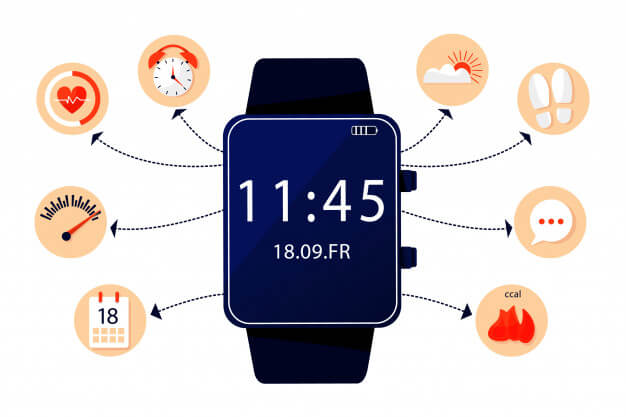When Your Intermittent Fasting Diet Plan Doesn’t Work the Way You Thought It Would
Intermittent fasting not working the way you think it should? One thing that can be true about the fasting window is that not every individual’s approach is going to work the same way for them. Some people may notice that time-restricted fasting was difficult for them to stick to, while others find it exceptionally easy and do not suffer from any serious setbacks. There are many reasons why this may happen, including what the individual’s lifestyle and social environment are like, as well as their current health status — even if these reasons are unknown to the person.
Intermittent fasting plans usually involve a cycle of fasting and eating. When you do not eat, the body enters a state known as ketosis, where it will break down fat instead of glucose for energy. This is a natural survival mechanism that can also help your body to heal and regenerate. In essence, the fasting process allows your body to have time to burn away old and/or damaged cells and tissues while simultaneously promoting new cell growth.
Not everyone’s body responds the same way to this ketosis effect with intermittent fasting schedules, even among those who are in generally good health and have no serious health issues to worry about.
Intermittent Fasting: What You Need to Know
Alternate-Day Fasting and other intermittent fasting methods are not for everyone. Many people find that they are unable to get a handle on this kind of schedule and either wind up feeling fatigued, or they binge eat later on in the day. Others, who have tried alternate-day fasting (ADF) or some other kind of intermittent fasting protocol, may feel better after completing the cycle and vow to do it again in the future.
To succeed with the intermittent fasting lifestyle, many people may need to be prepared for a certain level of discomfort while their bodies adjust to being without food for extended periods. There is usually a time when one’s stomach will growl and empty itself like it’s out of practice being empty for more than 2 hours per day at most.
Modified alternate-day fasting programs, which have the same cyclical pattern of fasting and eating as normal intermittent fasting, can help people to regulate hunger better and feel more energized than normal.
Alternate-day fasting is a way to have healthy daily habits while still having guaranteed access to food and drink. The average person that tries this fasting period will usually see positive results after the first couple of days of doing it. They will likely be able to regulate their hunger better, and some people may even lose weight while doing it. This type of intermittent fasting also works so well because many people are busy working or living a full schedule but still want to eat healthy for supper each night — a plan that is perfectly suited for this lifestyle change.
Calorie Deficit? Proven Strategies for Losing Weight That Don’t Involve Calorie Counting
Continuous calorie restriction is the most widely believed to be the only effective long-term strategy for losing weight. In addition to restricting calorie intake, intermittent fasting is gaining popularity as a weight-loss method. Intermittent fasting involves restricting daily energy intake to a certain number of calories for a predetermined time, such that eating is only allowed during a certain window of time each day.
Both intermittent fasting and calorie restriction involve restricting calorie intake in an attempt to shed pounds, but are they the same diet strategy?
Some say that it’s necessary to restrict your caloric intake for yourself to lose weight and that limiting your caloric intake will naturally cause you to shed pounds. However, this doesn’t seem possible for everyone.
Your daily calorie intake is not that simple to limit if you’re not actively restricting it each day.
Achieving Health Goals with Healthier Food Choices
However, it is possible to have fewer calories than your typical intake and still lose weight, as well as many people experiencing success on intermittent fasting simply eat less because they’re trying to achieve other health goals. For example, a research study showed that eating a moderately low amount of calories has an effective benefit on reducing body weight and improving insulin efficiency in obese individuals without causing changes in metabolism or endocrine profile, which lasted up to 1 year after the end of the diet (1). Furthermore, a study found that intermittent fasting was just as effective as daily calorie restriction in reducing body fat mass in obese women (2).
Calorie cycling is another way to have fewer calories than usual and still lose weight. Why calorie restriction doesn’t always work. One popular method of intermittent fasting is to have fewer calories than your typical daily intake for a certain period (for example, 1 week, 1 month, or 1 year). However, whether this approach works depends on the phase of the diet. Many people notice that calorie counting leads to severe energy deficits after just a few days or weeks and that they may not lose weight even if they eat less than their typical intake (3).
Blood sugar levels also vary during the diet, which can affect appetite.
Another factor that may make calorie restriction ineffective is lifestyle factors. Some people find it very difficult to restrict their calories due to the restrictions it creates in their daily routine. Others may not be able to restrict their calories because of health issues or circumstances such as the presence of young children or a job. It’s important to consider all of these factors to derive a bit of medical advice on how best to lose weight and what method of diet would suit you best. Blood sugar control (blood glucose) and other lifestyle factors affecting calorie restriction. One of the main factors that can affect a person’s results when it comes to calorie reduction is their blood sugar levels. This applies even to people who suffer from hyperglycemia or diabetes. In these people, blood sugar control is a priority (4).
For example, if you have diabetes, you’ll want to control your blood sugar well so that you don’t have any complications. The same goes for people who simply want to stay healthy by controlling their weight. Having constant high blood glucose levels is not only bad for your health but can also make calorie reduction more difficult because it causes hunger and cravings (5).
Why Has Intermittent Fasting Stopped Working?
There seems to be mixed evidence on whether intermittent fasting is just as effective at, or even more effective than, daily calorie restriction. It would appear that the effectiveness of intermittent fasting lies within the context of what you are trying to achieve through it. If you are looking for weight loss and longevity benefits then it’s best to go with a diet program that has been found to work in clinical trials such as calorie restriction or intermittent fasting. Intermittent fasting can also be useful for people with conditions like diabetes or thyroid issues which require them to have lower blood sugar levels.
Fasting Mimicking Diet Excerpt with Cosmic Mike
This is Mike, from PeachVitamins.com, and today we’ll be talking about intermittent fasting, what is intermittent fasting, what to expect, who can do it? And this is a two-part series. Well, the second one, I’ll be talking about what you can do a take with it and of course, how to do it and what are the timings. But before we start our goal and our mission causing this show is to bring perfect health by balancing the three pillars of mind, body, spirit.
[00:00:32.100]
And of course, our disclaimer, I’m not a doctor. This is not medical advice. This is just for education and for your awareness. And of course, in the cosmos we trust. Let’s go. So, let’s take a look at what is fasting, you know, the first thing that comes to my mind is Rumi’s coat, where he mentioned the first principle of medicine is fasting. And, you know, you should fast and see and feel the strength of the spirit reveal itself, meaning that’s what our ancestors did.
[00:01:12.100]
And that’s what all these religions call for, fasting, where it gives the body a chance to repair itself, where it gives the body a chance to cleanse. As you notice, in the religions, most of these cleansings are done with rituals or these special holidays, which happens after winter in the springtime, which is the ideal time to cleanse the system of all the stagnation that came with the winter, with dryness and hibernation, where the body was storing all the nutrients for later use.
[00:01:45.510]
So, the time, of course, is the best time to do it would be getting into the summer, just before summer and. Understanding that fasting is not about skipping meals, it’s more about having your meals between a certain amount of period where six to eight hours having your meals and then waiting maybe 10, 12, 14 or 16 hours for the next meal, just like if you were to eat your dinner at seven p.m. and wait till seven a.m. or 10 or 12 noon the next day before eating.
[00:02:27.800]
So is just giving extending the period between those two meals. And of course, by doing this, what you are doing is sustaining your blood sugar where you’re not grazing all along, and you’re preventing that spike of insulin that happens while we graze. Even having a small biscuit or even having a small snack creates that insulin. And once that insulin spikes, if it does, the muscles or anything else is not used up the sugar in the body it will deposit that has fat.
[00:03:03.230]
So, the goal should not be eating grazing throughout the day, but eating when you’re hungry, eating your breakfast, eating your lunch, and eating your dinner at the same time, which is very important now eating at the same time. I mean by eating at the same time every day, meaning having your breakfast at a certain time in the morning, having your lunch at a certain time in the morning, and having your dinner at a certain time in the morning because your body has to get used to what it expects, which means the brain starts secreting saliva and starts secreting those stomach acids at that particular time.
[00:03:41.840]
And when you’re ready to eat, your food is being digested purely. And what we run into because of our daily lives or our modern life where people are eating haphazardly at different times of the day, the body or the brain doesn’t understand is this breakfast is lunches, is dinner. When is the food coming? When it’s not coming. So, it’s just haphazard. And there could be a lot of issues coming because of that weight gain, constipation.
[00:04:09.570]
It could be diarrhea, also lack of digestion, gas, bloating. So, when you give the body a certain time, every day, it knows he would expect some food. I would expect some nutrients. I better start secreting some stomach acid. Not only that, but I better start secreting those enzymes. So, we must eat at the same time every day, depending on whatever time you start eating your breakfast, whatever time you eat your lunch, and whatever time you eat your dinner and eating, only when we are hungry make sure that the insulin is spiked only at those hours every three or four or five hours when the body loses or the brain, of course, uses all that glucose or your muscles use their glucose or the insulin and is taken to the muscles and less fat is deposited.
[00:05:03.620]
So, it’s very essential to understand and follow that. Now let’s look at what to expect when or doing fasting. Of course, as we mentioned, fasting will lower your blood sugar and weight loss or control your weight energy. You will have more energy, physical and mental, of course, because the body is efficiently using its resources and bringing that to turning that into glucose and helping the brain, you know, think better and do tasks better. So, more focus in the day, more energy, of course, lack of less bloating and gas.
[00:05:43.400]
The digestive juice is stronger. So, when you’re eating, they are breaking those things down properly. And of course, weight loss, lipid levels where your cholesterol levels can be lowered, your blood pressure levels can be lowered. Great for diabetics, of course, understanding when controlling that blood sugar, that insulin I’ll take helping diabetes, helping, you know, cholesterol, lipid levels or triglycerides, somebody who has high triglycerides. But just managing that fasting or having a farce done every few weeks can help with a lot of that.
[00:06:22.520]
And of course, all this turns into anti-eating because less oxidation, less the body has to break tissue down or break nutrients down to produce or to absorb. So anti-aging would be a better, the best one of those best results for regular fasting because remember, when the body’s not digesting, it’s repairing. So just imagine when you’re sleeping that what is the body doing? Well, it’s trying to repair. But if you just eat that whole bowl of rice just an hour ago, then guess what you were doing is just using the resources to digest that bowl of rice, and you because you are still, you’re not moving.
[00:07:08.800]
Where do you think insulin is going now? The insulin to spike the sugar spike? It’s all getting deposited. And, of course, especially in the stomach area, it’s all getting deposited as fat. So, it’s very essential to have your meals much before you’re ready to sleep and of course, making sure that the body has enough ample time to repair itself. Remember, we are building new blood cells, new organs, and new tissues every few weeks or every few months or so.
[00:07:42.100]
But we have to give this body in this cosmic, you know, to do its work, its magical work. And that’s where fasting comes in, where we are forced into the religious aspect of it. We are forced to do those certain days when the body is helping itself recover, helping itself repair because it doesn’t have food to digest and. A lot of positive results, which we will talk about, go through the list soon, but this is what we are trying to do.
[00:08:13.910]
This is what you’re doing with fasting. You’re controlling that blood sugar. So, you’re controlling those resources, so those resources can go out there and start repairing other things, other food or other protein or amino acids that are all over the system in your joints and in the blood where they’re not digested or dead tissues. This way the body goes out there and spends its resources on those things and starts breaking them down, thus preventing a lot of those diseases that are chronic and that affect us over a four- or five-year period.
[00:08:50.180]
Now, let’s take a look at who can do it and who should not be doing it. Remember, in the old days when they were fasting, they were not active as we are. Society was not as active as what we are at this point in our life, in this era, where we have a lot of computers, where we have a lot of technology cars, we’re moving. We’re exercising a lot more, of course, and a lot in our minds, more stressful environment.
[00:09:15.290]
So, in those days when a fast was required, they were more stationary, they were more resting at home. And of course, they were taking more benefit of the rest where they were repairing nowadays, we still have to go to work. We still have to drive out there. We still play sports. So, understanding that a person whose life demands a lot of physical activity maybe should be wondering if they should be doing fasting or not, or skip a portion of fasting or reduce their calorie intake to maximize the benefit.
[00:09:53.160]
But adults, of course, you know, and kids under 15, I wouldn’t recommend unless they’re very much overweight, but under 15, I would not recommend kids doing intermittent fasting. When you’re pregnant, of course, we do not want to do any kind of fasting as such. And when the female is having or the girls are having, their menstrual cycle is also very overwhelming for the system. And you shouldn’t be doing any kind of fasting or cleansing at that moment in time of the month.
[00:10:28.650]
You know, for women, it’s a lot of estrogen, hormonal, pregnant, known as fragile changes for men is not as much. So, you’ve got to wait and see where you are in your life, where you are in your day. You’re not traveling. You’re able to kind of chill your activity for a few days, or you’re able to rest for a few days. And in the next episode, we’ll look at exactly what to have, what not to have, and how exactly to do.
[00:11:00.000]
So please subscribe to this channel and hit the bell icon, so you can be notified of another episode of intermittent fasting where I’ll talk about. What exactly to do, when to do it, so thank you so much. This is Cosmic Mike until the next time.
[wps_products product_id=”1638865829923″ html_template=”product.php”]





